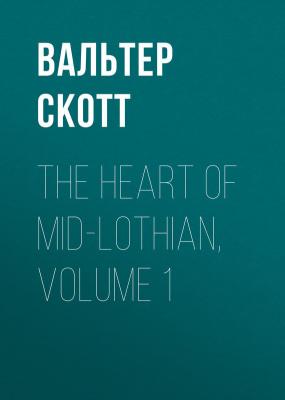ТОП просматриваемых книг сайта:
The Heart of Mid-Lothian, Volume 1. Вальтер Скотт
Читать онлайн.Название The Heart of Mid-Lothian, Volume 1
Год выпуска 0
isbn
Автор произведения Вальтер Скотт
Жанр Зарубежная классика
Издательство Public Domain
1
Author's connection with Quakerism.
2
Tombstone to Helen Walker.
3
His honour Gilbert Goslinn of Gandercleugh; for I love to be precise in matters of importance. – J. C.
4
[A well-known debating club in Edinburgh.]
5
The Lord Provost was ex-officio commander and colonel of the corps, which might be increased to three hundred men when the times required it. No other drum but theirs was allowed to sound on the High Street between the Luckenbooths and the Netherbow.
6
[Robert Fergusson, the Scottish Poet, born 1750, died 1774.]
7
This hook was to enable the bearer of the Lochaber-axe to scale a gateway, by grappling the top of the door, and swinging himself up by the staff of his weapon.
8
This ancient corps is now entirely disbanded. Their last march to do duty at Hallowfair had something in it affecting. Their drums and fifes had been wont on better days to play, on this joyous occasion, the lively tune of "Jockey to the fair;" but on his final occasion the afflicted veterans moved slowly to the dirge of
"The last time I came ower the muir."
9
The signatures affixed to the death-warrant of Captain Porteous were – Andrew Fletcher of Milton, Lord Justice-Clerk. Sir James Mackenzie, Lord Royston. David Erskine, Lord Dun. Sir Walter Pringle, Lord Newhall. Sir Gilbert Elliot, Lord Minto.
10
There is a tradition, that while a little stream was swollen into a torrent by recent showers, the discontented voice of the Water Spirit was heard to pronounce these words. At the some moment a man, urged on by his fate, or, in Scottish language,
Kelpie.
11
[Maitland calls it Best's Wynd, and later writers Beth's Wynd. As the name implies, it was an open thoroughfare or alley leading from the Lawnmarket, and extended in a direct line between the old Tolbooth to near the head of the Cowgate. It was partly destroyed by fire in 1786, and was totally removed in 1809, preparatory to the building of the new libraries of the Faculty of Advocates and writers to the Signet.]
12
A nobleman was called a Lord of State. The Senators of the College * of Justice were termed Lords of Seat, or of the Session.
13
[

